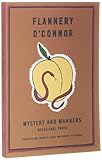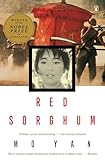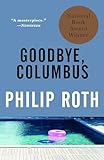Because of the mirror I cannot touch the me-inside-the mirror
Because of the mirror I get to meet the me-inside-the mirror
—Yisang, “Mirror,” translated from Korean by Jack Jung
God has created nighttime, which he arms
With dreams, and mirrors, to make clear
To man he is a reflection and a mere
Vanity. Therefore these alarms.
—Jorge Luis Borges, “Mirrors,” translated from Portuguese by Mildred Boyer and Harold Morland
Sometimes it takes a probe
and a camera’s eye to show you
what you’re looking for.
—Maureen Doallas, “How Argument Go.”
1.
Many people, especially during their teenage years, spend a lot of time gazing at themselves in the mirror. One of my dorm-mates in high school was a pretty dancer. One day she started to get up an hour earlier every morning—the reason, she said, was to study. She did get up early, but she spent that extra hour looking in the mirror and combing her hair. Boys do similar things, too. Walking to the cafeteria during high school, I occasionally passed by a boy: Feet glued to the hallway, he held a stainless-steel spoon and kept glancing at the reflection of his face.
I never took a fancy to mirrors. They bear ill omens in childhood stories. Narcissus, in Greek mythology, grows infatuated with his reflection in the water and eventually dies of unrequited love. The magic mirror in Snow White stirs up the queen’s jealousy and causes a series of misfortunes to befall the innocent princess. My fear of mirrors developed when I turned 14. Two weeks after a friend broke her mirror at lunch break, she was diagnosed with leukemia. That night I did some googling and found that breaking a mirror was considered bad luck in many cultures. I knew I was being superstitious, but immediately checked all three mirrors my mother kept at home to make sure they were stable.
I don’t know whether this is related, but whenever I hear people say great literary works “mirror” society, I pause. The mirror analogy seems universal and timeless. A genre of literature known as Specula Principum became popular in Western Europe during the Middle Ages and Renaissance. Specula Principum, which translates to Mirrors for Princes, provided political instructions for rulers. One of the most famous compilations of Chinese history completed in Song Dynasty (1084 AD) is titled Zizhi Tongjian or Comprehensive Mirror to Aid in Government.
Last year, Shanghai Translation Publishing House, a leading press in China, asked me to translate Mystery and Manners and The Habit of Being for their forthcoming project, The Complete Works of Flannery O’Connor. I was surprised to find that in her time (the 1950s), American critics and readers wanted to enforce an orthodoxy of sorts on fiction writing:
They demand a realism of fact which may, in the end, limit rather than broaden the novel’s scope. They associate the only legitimate material for long fiction with the movement of social forces, with the typical, with fidelity to the way things look and happen in normal life. (“Some Aspects of the Grotesque in Southern Fiction”)
In the same essay, O’Connor quoted Van Wyck Brooks, a literary critic, biographer, and historian, who called for literature to return to its “traditional” role as a “mirror and guide for society.” To O’Connor, such literature would only “satisfy tired readers” and flatten the originality of the American Southern voice. Interestingly though, the same orthodoxy is actually the literary tradition in China that still prevails today. All the best contemporary works in Chinese are about typical characters involved in big social movements. To Live by Yu Hua chronicles the fate of Fu Gui, an average Chinese man, during the Cultural Revolution. The Red Sorghum by Mo Yan revolves around a group of peasants fighting Japanese invaders during World War II.
As a writer, I—like all other responsible citizens—agree that we need to be socially engaged. But something feels wrong about the aforementioned demand: first the words “typical,” and “social forces.” These terms suggest the life of an individual is unimportant unless it is tied to social movements, and that the artistic elements of fiction are only a vehicle for the work’s larger societal message. Second, the word “fidelity.” I never really liked that word. In her essay “Erasing the Signs of Labor under the Signs of Happiness: ‘Joy’ and ‘Fidelity’ as Bromides in Literary Translation,” poet and translator Sophie Collins discusses the feminine connotation of the word fidelity—women are required to be faithful to men. Fidelity implies a subordinate nature: Translations are asked to be the handmaids of the original texts, fiction that of reality, society, and nation.
I can see why the mirror analogy persists. The reflection of a mirror is objective, dehumanized, and thus faithful. But that doesn’t work in fiction writing (or in nonfiction writing). Art is a selective process, and selection is inherently subjective. If we require writers to exactly follow the orthodoxy, to record the “typical” in a “faithful” fashion, then we are done with fiction.
2.
For the contemporary American reader who respects and cherishes original voices, perhaps there is no need to defend the importance of writers’ subjective feelings. But subjectivity doesn’t only involve insight and point of view. It also contains presupposition and judgment. We are now more conscious of racism, homophobia, and sexism in older American works of literature; and we demand a more faithful representation of minorities in present-day writing. So, the idea of fiction as a mirror endures—writers should be fair, balanced, and objective.
In practice, being fair often turns into being generous. Writers may feel obligated to “correct” for the prejudices of the past. They believe that their writing should reflect their values or group identity. Feminists may avoid showing any female character that is too frail or emotional; minority writers feel the urge to present a positive picture of their ethnic group. As a result, fidelity takes the form of loyalty; art serves as the handmaid of collective values.
In August 2018, after my op-ed was published in The New York Times, I was targeted by cyber bullies. I wrote the piece two days after I learned of my mother’s stroke. Grief, guilt, and grievance overwhelmed me; I couldn’t help but unleash my feelings on the page. I criticized the pragmatic tendency of Chinese culture and medical institutions that are dominated by nepotism and wealth. My Weibo account, the Chinese equivalent of Twitter, was soon filled with hundreds of angry and hateful comments. My countrymen called me a “traitor” who “drank her mom’s blood to lip the American dick.”
After the storm passed, I told my friends at home I didn’t care what people had said. But that was a lie. For four months, I wasn’t able to write down a single Chinese word. My English writing also became difficult. I kept torturing myself with the following questions:
1) Was I smearing my country?
2) For whom was I writing?
3) Was my writing contributing to my country anymore?
And soon I had the answers:
1) No. All the points in my essay were facts.
2) When I write in English, I write for readers who speak that language.
3) Probably not.
The last answer killed me. Growing up in China, I had been taught to be patriotic and responsible. What value does my writing have if it doesn’t do my country any good?
In my darkest moment, I started reading Philip Roth, the great American author who, as Brett Ashley Kaplan puts it, was once considered an “enemy” by his fellow Jewish people. Roth’s characters are not pleasant. Take Goodbye, Columbus, his first major work. The Patimkins are filthy rich and snobbish, while Neil’s working-class family seem like boorish fools. But because the portrait is so raw, I can relate to Neil’s desire to fit in with the upper-middle class Jewish American community. Aunt Gladys sounds exactly like my working-class relatives in Shanghai. I understand Neil’s feelings about living with her—he fears being drowned in the unintellectual life that he despises, and he is afraid that all his hard work will come to nothing. Neil is not pleasant either: He bears the defects of both sides. Reading Roth, I know I am Neil, and Neil is me.
I probably sound like I was seeking legitimacy in Roth’s work. Perhaps I was. But I recall my days as a writer in Chinese. After my first collection, People Grow Old, But Never Die, came out in 2014, a friend brought her husband to meet me after a reading. It turned out we’d gone to the same high school. We talked about our shared memories and had a very good time. He said he couldn’t wait to read my stories. Two days later, he was the first person who posted a negative comment online. My friend told me that the dark picture of the neighborhood in my book offended him.
Back then I didn’t question whether my stories were a faithful representation of the lower-class Shanghainese, because, like many authors, my first book is largely autobiographical.
Take “A Sick Tooth,” the short story that earned me a China Times Literary Award in Taiwan in 2011. The father is useless and timid, like my father; the mother extremely economical and pragmatic, like my mother. They are good people, only stricken with poverty. But, looking back, I wonder what good that story did for my city, Shanghai. Or for my parents. As Czeslaw Milosz’s famous quote goes: “When a writer is born into a family, the family is finished.”
But my Shanghai stories never aroused controversy; the readers who enjoy my book find in it their own images, not happy ones though, mostly their deep-buried woes and sorrows. Will the image of Shanghai and Shanghainese be tarnished by my stories? I would not be arrogant enough to think so. The question of whether my stories were useful to my city never arose while I was writing. Lost in a world of insults and curses that people hurled at me last year, I forgot the nature of art. Art is good in and of itself, as Thomas Aquinas puts it. For all my writing, I am performing painful self-reflection and I would be grateful if my readers would do the same after reading my work.
Back in my school days, Japanese horror stories were very popular. There was one titled “Miss Mirror.” One day, a young doctor works the night shift. While washing her hands in the restroom, she sings spells into a mirror. Soon, the image of a ghost appears in the mirror. After I came to the States, I learned about the legend of Bloody Mary. If you chant her name into a mirror, she will emerge.
These thoughts about mirrors came to me randomly, while I was still considering my writing identity. It struck me that I do hope my writing serves as a mirror, not an ordinary one, but a magic mirror that can summon ghosts. I have a theory about the abundance of ghost-in-mirror stories around the world: The ghost is not “the other;” when we look at ourselves long enough, we see our own grotesqueness.
Humans are born self-centered. If I don’t remind myself of the dark and ugly side that I have, I would become a narcissistic being, like in Greek mythology. I need the magic mirror on the wall to tell me the fairest girl is someone else. I may end up feeling unhappy, but at least I can have true self-knowledge. The same can be said of every individual, social group, generation, culture, and nation. As Flannery O’Connor said it, “The first product of self-knowledge is humility, and this is not a virtue conspicuous in any national character.”
3.
In real life, I am all for inclusion and acceptance, for political correctness, that American obsession. I owe everything I have here to social justice advocates. But sometimes I wonder: What would be Philip Roth’s fate if he were a young writer today?
Author and professor Brian Morton, in his essay “Virginia Woolf? Snob! Richard Wright? Sexist! Dostoyevsky? Anti-Semite,” points out today’s college students’ tendency to condemn canonical authors for moral failings. I love the comparison he draws between reading literature of the past and time traveling.
When we imagine that writers from the past are visiting our world, it subtly reinforces our complacence, our tendency to believe that the efforts at moral improvement made by earlier generations attained their climax, their fulfillment, their perfection, in us. The idea that we are the ones who are doing the time-traveling doesn’t carry the same implication.
If, whenever we open old books, we understand from the get-go that their authors have motes in their eyes regarding important ethical or political questions, it might help us understand that the same thing could be said of us today.
Morton’s analogy reminds me of a story about Nan-in, a Japanese Zen master during Meiji era. Once a university professor came to ask for his teachings. While serving tea, Nan-in kept pouring hot water into the cup after it was full. The professor looked at the cup and said, “It’s already full. No more water.” “Like this cup,” Nan-in said, “you are full of your own opinions. How can I teach you Zen?”
If we are too full of our own opinions, we will never be able to see the richness of our predecessors. We must recognize our own limitations (or at least accept the possibility of our limitations) so we can begin to appreciate the merits of others.
On the other hand, racism, sexism, and prejudice persist. In “The Snow Queen,” one of Hans Christian Andersen’s most famous fairy tales, a wicked hobgoblin makes a mirror that reduces everything good and beautiful to nothing. When this mirror breaks into billions of pieces, the shards fall across the earth and become embedded in people’s hearts and eyes, causing them to only see the bad and ugly in other people.
As a writer, how can I be sure that I am not making the same wicked mirror? What is the dividing line between being critical and being hateful? How much liberty can writers take to reveal the darker side of our collective selves?
My answer is: as long as I am making the mirror of truth, and as long as I am using the mirror to reflect myself.
Writers are often called truth seekers. But what is truth? Etymologically, the Middle English word for “truth” is “trewthe,” which derives from Old English word trēowth, which mean fidelity and is akin to the Old English word trēowe, which means faithful. Here it is again: fidelity. That doesn’t help: fidelity to what?
In an indirect way, Flannery O’Connor addresses my question. As a Roman Catholic, the nature of truth is transparent to her: It is with God and with mystery. In a letter she wrote to Alfred Con, then a freshman at Emory University, who felt lost in college, O’Connor says:
Where you have absolute solutions, however, you have no need of faith. Faith is what you have in the absence of knowledge. The reason this clash [clash of different world religions] doesn’t bother me any longer is because I have got, over the years, a sense of the immense sweep of creation, of the evolutionary process in everything, of how incomprehensible God must necessarily be to be the God of heaven and earth.
I am not religious, though Christianity appeals to me intellectually. However, while translating O’Connor, I realized that she, like all the great writers of the past, shines a light on my narrow-mindedness. Like Alfred Con, I have become biased by “the stimulation of an intellectual life that happens in college.” Meanwhile, without realizing it, I have been experiencing what O’Connor calls a “shrinking of the imaginative life.” Nowadays, truth has mutated into its many degraded kin: values, reality, perspective, and group image. Exposed to them, I took the side of the majority and stuck to it. I rested my skepticism. I have stopped looking for God (truth).
Perhaps, truth is something that transcends all the comprehensible things around us. It is not something that we hold in our hands or that we fight for, but something that keeps us searching and wondering.
Truth also affords writers the liberty to be unfaithful to its degraded kin. In 2016, shortly before I came to the U.S., I asked Gish Jen at her reading in Shanghai the same question that I ask myself today: Immigrant writers take bits and pieces of their native land with them; how can they deliver a full faithful picture of their homeland or ancestors’ land to a foreign readership? Jen’s answer was refreshing, and recalling the moment now, I feel even more grateful. “They can’t,” she said. “Nobody can give a full faithful picture of his/her homeland. But writers have the liberty to be disloyal. And we pay the price for being expelled from Plato’s Republic.”
Today, I find many writers, myself included, driven by the moral demand to write “what it should be” instead of “what it is”—that is, we use the “correctness” of our values to determine “what it should be.” But, as I see it, writing for or against certain values creates propaganda. The problem with the creation of this type of propaganda is that we close our eyes and let our values do the seeing for us. In doing so, we give ourselves the illusion of flawlessness and absolute correctness. When we are complacent in this way, we have turned away from truth.
In the tradition of Zen Buddhism, the mind—the higher self—is compared to a bright mirror. There was a fierce debate between the Northern and Southern Schools in seventh-century China: one school believed that the mirror needs constant cleaning; the other believed that it was fundamentally pure, free, and unconditioned.
This is a polemical debate, and I am no expert on Zen. But this bright mirror matches my ultimate image of the mirror of truth. To me, a look at our internal ghosts won’t result in a distorted reality, like it does in “The Snow Queen.” When looking in the mirror, we also see our fundamentally good higher selves. We see what we could be. Allow me to once again quote Flannery O’Connor: “to know oneself is, above all, to know what one lacks. It is to measure oneself against Truth, and not the other way around.” Speak to the mirror. Don’t shy away from anything we see. Grope your way out of the darkness and the unknown. Ultimately, we will see the light, in every corner of the world, in others, and in ourselves.
Image credit: Snapwire/Will Milne.
















